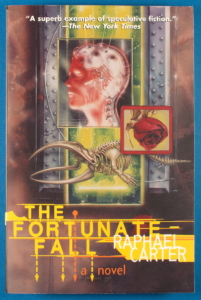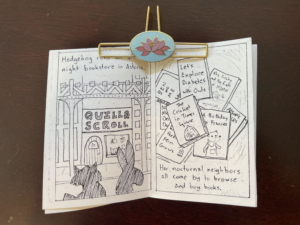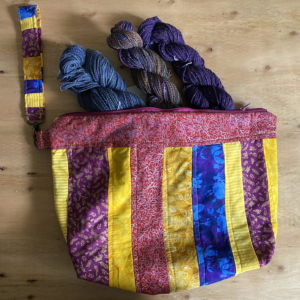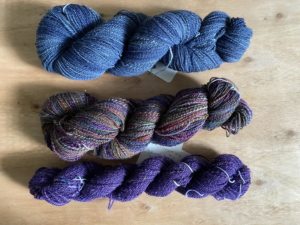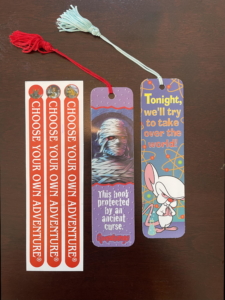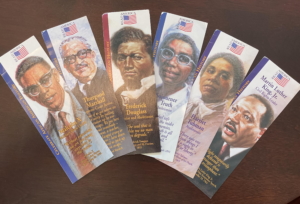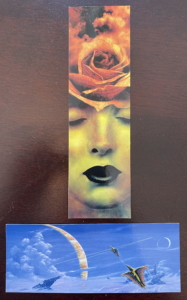We bring to your attention books and short stories published in 2024 by creators whose works have previously won the Otherwise (formerly Tiptree) Award, and our past Fellows. As nomination and voting deadlines get closer for awards for 2024 work (March 14th is the nomination deadline for the Hugos!), consider adding these to your reading list:
- Maureen F. McHugh, whose China Mountain Zhang, won the 1992 award, wrote “Liminal Spaces”, published in Reactor in January 2024.
- Kelly Link, whose Travels With the Snow Queen won the 1997 award, wrote The Book of Love, published by Random House on February 13, 2024. Link also wrote a short essay, “Silly Sisters: Acid and Honey,” in How Women Made Music: A Revolutionary History from NPR Music, published by HarperOne on October 1, 2024.
- Molly Gloss, whose Wild Life won the 2000 award, wrote “Wápato”, published in the November-December 2024 issue of Asimov’s Science Fiction, available for purchase on Magzter.
- John Kessel, whose Stories for Men won the 2002 award, wrote the short story “A Brief History of the War with Venus” and the essay “Imagining the Human Future: Up, Down, or Sideways”, published by PM Press on November 5, 2024 in the collection The Presidential Papers Plus… Imagining the Human Future: Up, Down, or Sideways Plus The Last American and Much More.
- Catherynne M. Valente, whose The Orphan’s Tales: In the Night Garden won the 2006 award, wrote Space Oddity, published September 9, 2024 by S&S/Saga Press.
- Nisi Shawl, whose Filter House won the 2008 award, wrote Kinning, published January 23rd, 2024 by Tor Books. Shawl also wrote the short story “Over a Long Time Ago”, published May 2024 by Lightspeed, the novella The Day and Night Books of Mardou Fox, published October 15, 2024, by Rosarium Publishing, and the essay “Quenching Our Story Thirst”, published in Jamaica Ginger and Other Concoctions by Nalo Hopkinson, published by Tachyon Publications, October 29th, 2024.
- Patrick Ness, whose The Knife of Never Letting Go won the 2008 award, wrote Chronicles of A Lizard Nobody, published September 3, 2024 by Walker Books.
- Andrea Hairston, whose Redwood and Wildfire won the 2011 award, wrote Archangels of Funk, published May 7, 2024 by Tordotcom.
- Caitlin R. Kiernan, whose The Drowning Girl won the 2012 award, wrote Living a Boy’s Adventure Tale, published by Subterranean Press in January 2024.
- Jo Walton, whose My Real Children won the 2014 award, wrote several reviews and essays at Reactor in 2024, such as “On Selecting the Top Ten Genre Books of the First Quarter of the Century”, published November 12, 2024. Walton also wrote a new essay as an introduction to a fresh edition of The Fortunate Fall by 1998 Otherwise Award winner Cameron Reed, published August 13, 2024 as a Tor Essentials edition by Tor Books.
- Eugene Fischer, whose The New Mother won the 2015 award, wrote the short story “The Enrichment and Decay of Ionia”, published January 24, 2024 by the Ash Center for Democratic Governance and Innovation at Harvard University’s John F. Kennedy School of Government as part of their Interdisciplinary Workshop on Reimagining Democracy essay series.
- Anna-Marie McLemore, whose When the Moon Was Ours won the 2016 award, wrote Flawless Girls, published May 28, 2024 by Feiwel & Friends. McLemore also wrote the short piece “Blue Amber”, published in Faeries Never Lie: Tales to Revel In, published Sept. 24, 2024 by Feiwel & Friends.
- Akwaeke Emezi, whose Freshwater won the 2019 award, wrote Little Rot, published June 18, 2024 by Riverhead Books.
- Oghenechovwe Donald Ekpeki, whose Ife-Iyoku, the Tale of Imadeyunuagbon won the 2020 award, co-edited The Year’s Best African Speculative Fiction 2023, published December 10, 2024 by CAEZIK SF & Fantasy.
- Rivers Solomon, whose Sorrowland won the 2021 award, wrote Model Home, published October 1, 2024 by MCD.
- H. Pueyo, 2017 Otherwise Fellow, wrote the short piece “Bite Me, Drink Me, Eat Me”, published August 2024 in The Dark.
- Vida Cruz, 2018 Otherwise Fellow, wrote “Where Do Stories Begin?” published in Mapping New Stars: A Sourcebook on Philippine Speculative Fiction in 2024 by University of the Philippines Press. Cruz also wrote “Rendering Justice”, a limited-edition pamphlet released during the 2024 Glasgow WorldCon and published by Calque Press.
- Ana Hurtado, 2018 Otherwise Fellow, wrote “La mandíbula del río”, published January 2024 by Uncanny Magazine, and “Nuca”, published April 15, 2024 by Strange Horizons.
- Naseem Jamnia, 2022 Otherwise Fellow, wrote “Break Through Our Skin”, published in The White Guy Dies First: 13 Scary Stories of Fear and Power, published July 16th, 2024 by Tor Teen.
- Dante Luiz, 2022 Otherwise Fellow, wrote the story “Escobar Medina Plays God”, published January 15, 2024 in Interzone. Luiz also created cover art (Star*Line, Winter 2024; Small Wonders, October 2024; Haven Speculative, November 2024; Baffling Magazine, December 2024) and interior art (“The Ghost on the Server”; Cartoon: “PARTS”; “You Will Be You Again”; Sleeping Arrangements; “Firebird Stormbird”; “Glory Hounds”; “Uprooted”; “Boitata”; “Carranca”).

